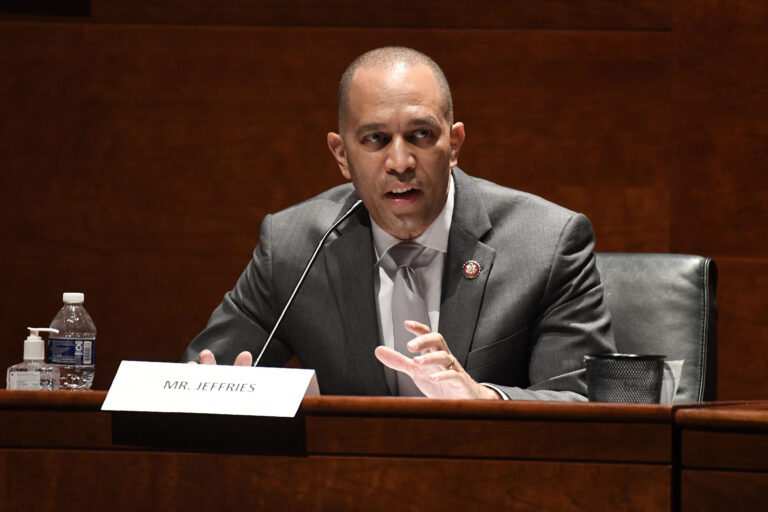
Election legislation aimed at preventing another Jan. 6 insurrection attempt will have to wait until after this year’s midterm elections on Nov. 8 — but will get passed, House Democratic Conference Chairman Rep. Hakeem Jeffries pledged Thursday.
“It’s the highest of priorities,” Jeffries, D-N.Y., told reporters. “We’ve seen that free and fair elections, as a principle, have been under assault. The right to vote — under assault. The peaceful transfer of power — under assault. The rule of law — under assault.”
The legislation would clarify and expand parts of the 1887 Electoral Count Act, which, along with the Constitution, governs how states and Congress certify electors and declare presidential winners. The changes in the certification process are in response to unsuccessful efforts by former President Donald Trump and his allies to exploit loopholes in the law to overturn his 2020 defeat to Joe Biden, and the violent attack on the Capitol by his supporters as Congress counted the votes.
The House has already passed a more expansive bill, the Presidential Election Reform Act, overhauling the electoral rules, but it has far less Republican support. While the House bill received a handful of GOP votes, the Senate version already has the backing of at least 12 Republicans — more than enough to break a filibuster and pass the legislation in the 50-50 Senate.
While some withstand the test of time, others reach great heights only to fail miserably. These restaurant chains once thrived, but are now history.
“Congress’ process for counting the presidential electors’ votes was written 135 years ago,” Senate Republican leader Mitch McConnell said. “The chaos that came to a head on Jan. 6 of last year certainly underscored the need for an update.”
McConnell, R-Ky., made the remarks just before the Senate Rules Committee voted 14-1 to approve the bill and send it to the Senate floor, where a vote is expected after the November election. The only senator to vote against the legislation was Republican Sen. Ted Cruz of Texas, one of two senators to stand and object to Biden’s certification last year.
The legislation updates a law written in the 19th century, and would also mandate that at least one-fifth of members of both the House of Representatives and the Senate would be required to lodge objections to a count, instead of the single member that can do so now. While there were enough GOP election-deniers in the House to meet that threshold in 2020, the number was far less in the Senate.
McConnell called the House bill a “nonstarter” in the Senate because of the bipartisan compromise on the Senate language. “We have one shot to get this right,” he said.
Despite differences of opinion, Jefferies predicts the final legislation will ultimately clear both chambers of Congress. “I believe it’s a high priority for the senators as well,” he said. “At some point, we’ll be able to get together and figure out how to proceed.”
___
© 2022 New York Daily News
Distributed by Tribune Content Agency, LLC.
0 comments :
Post a Comment